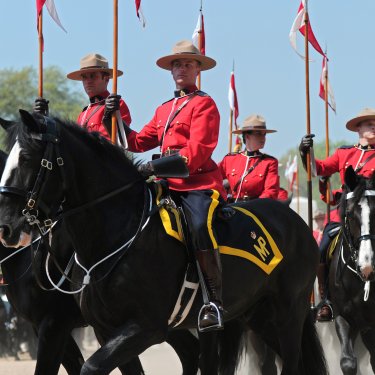ALERT: Canadian police block media access during pipeline protest on Indigenous reservation

Reporters Without Borders (RSF) is concerned that Canadian police blocked press access during a January 7 protest against the construction of a gas pipeline on a Native territory. This move by the authorities exhibits a blatant disregard for the rights of journalists to cover the activity of both police and protesters.
The Royal Canadian Mounted Police (RCMP) enforced a roadblock on January 7 near camps set up by members of the Wet’suwet’en Nation in northern British Columbia, blocking access to media outlets including a CBC TV crew and Indigenous news organization APTN News. These camps, set up by the Wet’suwet’en Nation to resist the construction of a gas pipeline through their territory, were the center of Monday’s standoff between protesters and the RCMP, during which 14 people were arrested by police and armed tactical unit officers. Police told APTN News reporters they were barred from the camps due to safety concerns and that if they tried to pass through the checkpoint they could be arrested and charged with obstruction. Company workers, however, were allowed through the roadblock, according to APTN. Several journalists and protesters reported that communications signals were disrupted in the area, silencing the social media feeds of journalists present and at times cutting communications between reporters at the camps and their editors. RCMP published a statement Monday evening denying it deliberately cut communications.
“We condemn the RCMP’s decision to block press access in Wet’suwet’en territory, effectively restricting information on the actions of police officers and protesters during this demonstration,” said Margaux Ewen, Director of RSF’s North America bureau. “This action by police goes against the interests of a free press, and it is unfortunately not the first time we have seen authorities attempt to restrict access to environmental protests on Indigenous lands.”
In March 2017, criminal and civil charges were brought against reporter Justin Brake, who was arrested a year earlier and charged with trespassing while covering indigenous lands rights protests against a hydroelectric project near Labrador, Canada. Around this same time, several journalists were arrested and charged while covering the North Dakota Access Pipeline protests at Standing Rock reservation in the United States.
Canada ranks 18th out of 180 countries in RSF’s 2018 World Press Freedom Index.
CORRECTION: A previous version of this publication stated: “Cellular service was also cut in the area…” This has been revised to read: “Several journalists and protesters reported that communications signals were disrupted in the area…”



